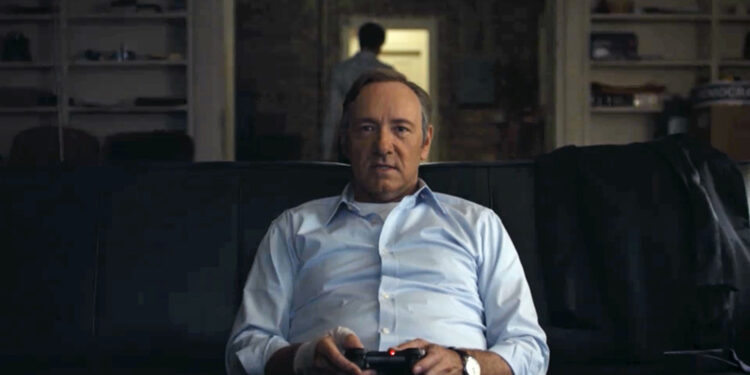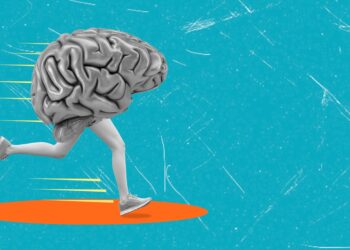Many people use gaming to find moments of stress relief throughout the workday.
Gaming is a way to cope with a boring role or as a way to feel more in control.
Unlike scrolling Facebook or browsing online, the games are fully engaging and even give us the kind of virtual confidence boost that we might not achieve in our day-to-day work.


Could 5-minute Angry Birds sessions help you think better?
When other employees catch a glimpse of William Bauer playing video games instead of working, some think he’s wasting time. But the 24-year-old who helps to head up US-based Royce Leather, his family’s accessories business, isn’t slacking off. The five-minute Angry Birds session helps him unwind and provides the kind of passive thinking time he needs to solve problems.
Science suggests they may be on to something. Psychologists, along with the gamers themselves, say the benefits go beyond fun or amusement.
“Some video games are built to give you a short experience where you can be competent or autonomous,” said Chris Ferguson, a psychology professor who researches video games at Stetson University in DeLand, Florida in the US.
The millionaire-maker
In 2006, two students in B.J. Fogg’s class collaborated on a project called Send the Sunshine. Fogg is the founder and father of a theory on behavior design that runs at Stanford University in California.
Their insight was that one day mobile phones (this was the pre-smartphone era) would be used to send emotions: if your friend was in a place where the weather wasn’t good and you were standing in sunshine, your phone could prompt you to take a picture and send it to them to cheer them up. One of the two students, Mike Krieger, went on to co-found Instagram, where over 400 million users now share sunrises, sunsets and selfies.
Fogg called for a new field, sitting at the intersection of computer science and psychology, and proposed a name for it: “captology” (Computers as Persuasive Technologies). Captology later became behaviour design, which is now embedded into the invisible operating system of our everyday lives.
The emails that induce you to buy right away, the apps and games that rivet your attention, the online forms that nudge you towards one decision over another: all are designed to hack the human brain and capitalize on its instincts, quirks and flaws. The techniques they use are often crude and blatantly manipulative, but they are getting steadily more refined, and, as they do so, less noticeable.
Fogg spoke at an Atlanta seminar and provoked strong responses from his audience falling into two groups: either “This is dangerous. It’s like giving people the tools to construct an atomic bomb;” or “This is amazing. It could be worth billions of dollars.”
The second group has certainly been proved right. Fogg has been called “the millionaire maker”. Numerous Silicon Valley entrepreneurs and engineers have passed through his laboratory at Stanford, and some have made themselves wealthy.
Fogg himself has not made millions of dollars from his insights. He stayed at Stanford, and now does little com- mercial work. He is increasingly troubled by the thought that those who called his ideas dangerous may have been on to something.
Gamification at the desk
Be strategic about when to take a video game break. The best time to play is during periods when you’re less productive, like the afternoon lull, or when boredom sets in.
Gaming might also help with creative thinking and problem solving. Stepping away from a tricky task for a few minutes of gaming might spur a new perspective on a business problem or help to reset your mind during an especially difficult day, say experts.
“It gives people a step back from whatever their work task may be and puts them in a different frame of mind,” said Ferguson, adding that most people don’t have trouble breaking away from gaming to return to work.
Some employers are catching on to the benefits of video games and integrating them into company culture. Start-ups and technology firms like Facebook and Google have long offered game consoles along with other office distractions, moves designed to motivate workers and build camaraderie.
And other companies are using more “gamification” in the workplace, the idea of applying game mechanics to create a fun and competitive atmosphere that motivates people to succeed at tasks, says Ferguson. For example, sales people might track their earned sales commissions and compete with colleagues to meet a certain sales goal through a smartphone app that mimics playing a video game.
Micro-breaks, good or bad?
Research suggests that these so-called micro-breaks are beneficial.
In a 2014 study by researchers at Kansas State University in the US of 72 full-time employees from a variety of industries, those who spent one or two minutes during breaks in their day playing games such as Candy Crush on their phones reported being happier than their peers. Employees reported spending 22 minutes playing video games during an eight-hour workday.
Outside of start-ups, though, many traditional companies still feel games are unproductive.
To get his office mates on board with video game breaks, Sam Williamson, 27, started by playing soundtracks of old school console games such as Super Mario to see the reaction at the office. Colleagues at Guardian Removals, an Edinburgh-based moving and storage company, found the catchy tunes less distracting than songs with words and warmed up to the idea of game breaks.
Nowadays, Williamson has an old-school Nintendo 64 console in the office, and the team plays on Fridays or on some mornings, he said. “It just helps get your day started on the right foot.
“Some video games are built to give you a short experience where you can be competent or autonomous (…) “It gives people a step back from whatever their work task may be and puts them in a different frame of mind”, Chris Ferguson.
“After all, we are nothing more or less than what we choose to reveal”
— Francis Underwood












